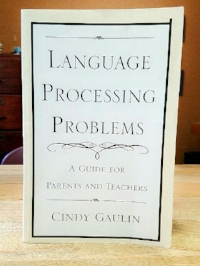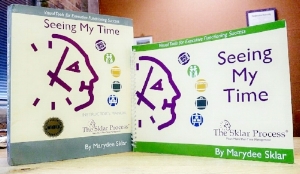BOOKS & OTHER INFORMATION
LANGUAGE, SOCIAL, PHYSICAL & COGNITIVE:
Language Processing Problems – A Guide for Parents and Teachers by Cindy Gaulin provides an in depth explanation of language processing. The author discusses the ever changing nature of one’s ability to process language, and gives some strategies for addressing specific problems, such as following directions, verbal memory, word retrieval, and organizing expressive output.
Check out asha.org for more information about speech, language and hearing.
Yardsticks: Children in the Classroom Ages 4-14: A Resource for Parents and Teachers by Chip Wood provides a quick look at language, social, physical, and cognitive skills expected at each age. In addition, the easy to read format provides information about academic skills expected at each age as well.
EXECUTIVE FUNCTIONING:
Frustrated with your child not cleaning their room? Frustrated that your child forgets books and papers needed to complete homework? The following book is worth the investment: Executive Skills in Children and Adolescents, by Peg Dawson and Richard Guare. It provides background information about executive skills as well as a list of 11 different behaviors involved in executing a task with many steps. While sample checklists and contracts are included, the case examples that follow very specific task analyses are extremely helpful.
"The Seeing My Time program takes an innovative, brain-based approach to teaching time management and other executive function skills. As participants are led through the Seeing My Time® workbook, they learn about their brain, and observe how visual tools can effectively support their brain with planning and organizing. This reflective, hands-on process lays the foundation for sustaining long-term change. Seeing My Time® is especially valuable for individuals with: Executive Function Deficits or Delays, ADD/ADHD, Dyslexia or other Learning Differences, A Talented and Gifted Designation, and Minimal Traumatic Brain Injury. The program is designed for individuals as young as fifth grade through adulthood."
Confused about what Executive Functions entail or where you could get more help? The Rush Neurobehavioral Center website is a great resource in providing basic information of what Executive Function is and how it plays out in our lives. In addition, the Rush Neurobehavioral Center offers a range of services and programs focused on helping students, parents, and teachers with Executive Functions.
NOISE AND HEARING:
Check out The Buds Campaign for information about environmental noises and their implication on hearing loss. This site provides a glimpse at many campaigns and sponsors that stress the importance of proper, and safe, listening practices. Often times iPhones, video games and music players are played at levels like a rock concert, thus causing hearing loss over time.
The National Institute for Child Health and Human Development and the National Science Foundation found that “background noise in some daycare centers and homes can interfere with language development of infants younger than 13 months.” “All caregivers should set aside quiet time or a quiet corner where infants can get necessary language experiences,” says Rochelle Newman, author of the study. “Otherwise, conversation directed at the child may blend into the background.” [in Developmental Psychology vol. 41, no. 2; taken from ASHA Leader, May 3, 2005]
ASHA and the Sight & Hearing Association warn about the dangers of increasingly noisy toys. While many parents think harmless, some toys are so loud they can cause hearing damage in children. Sight & Hearing publishes an annual list highlighting the noisiest toys.






